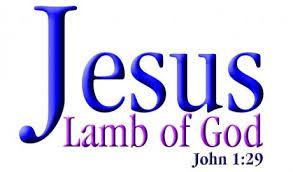 Throughout the history of Christianity, this has been a major question theologians have debated. And systematic theologians often have made it a plank in their system. Best known is John Calvin’s systematic theology that is most easily characterized by the acronym TULIP. The third letter, L, represents Limited Atonement. So, Calvin taught that Jesus’ sacrificial, atoning death for the sins of others is limited in its application to only the elect, that is, those who are God’s people.
Throughout the history of Christianity, this has been a major question theologians have debated. And systematic theologians often have made it a plank in their system. Best known is John Calvin’s systematic theology that is most easily characterized by the acronym TULIP. The third letter, L, represents Limited Atonement. So, Calvin taught that Jesus’ sacrificial, atoning death for the sins of others is limited in its application to only the elect, that is, those who are God’s people.
Christians who believe in limited atonement usually embrace all the rest of Calvin’s theological system: T=Total Depravity, U=Unconditional Election, L=Limited Atonement, I=Irresistible Grace, P=Perseverance of the Saints. These are called “the five points of Calvinism.” But of these five, I only believe in limited atonement and thus reject the other four points of Calvinism.
Early in my theological education, I was taught that Jesus died for all peoples’ sins, so that his atonement is applied universally to all people, except for one sin–the sin of unbelief. Accordingly, you were not in your sins (or your sins were not on you) except for one, the sin of unbelief, until you believed. And that sin of unbelief is to not believe that Jesus died for your sins. After so many years, I concluded that this teaching was incompatible with the Bible.
When Christians discuss these matters, there often needs to be some precision in language. So it is in discussing Jesus’ atonement. When I say now that I believe Jesus’ atonement is limited, I only mean it is limited in its application to people. That is, Christians experience Jesus’ sacrificial death for them because they have believed in it. People who do not believe Jesus died for their sins do not experience this atonement. That is, it is not their possession. So, Jesus’ atonement is limited in its application and consequently not applied universally to all people.
On the other hand, God offered Jesus’ sacrificial, atoning death to all people as the only remedy for their sin problem. For all people have sinned and thus were separated from God (Ephesians 2.1). The only way they could solve their sin problem, and thereby be reconciled to God, is by believing in his remedial offer of Jesus’ atoning death for their sins.
So, Jesus atoning death is universally available to all people through faith in Jesus, but it is restricted in its application, thus limited in experience, only to those who believe in it. I think there are numerous ways to see this in scripture.
First and foremost is the animal-sacrificial system of ancient Israel. Either the priest or the father of a family would typically bring a sheep or goat before the altar in the temple at Jerusalem, place his hands on the animal’s head, and confess sins. The priest would then slit the animal’s throat, and it would bleed to death. The sins of Israel, or those of the father and his family, were figuratively transferred to that innocent animal. And this atoning act was particular in that it was applied only to Israel or that family. There was no other remedy for sins to be atoned, which means “covered.” Without the shedding of blood, there was no remission of sin. These sacrificial animal deaths were a type that prefigured Jesus dying for the sins of others as “the Lamb of God” (John 1.29, 36; Revelation 5.6).
Second, regarding the foremost Old Testament text which so graphically portrays Jesus’ atoning death, which is Isaiah 53, Yahweh says, The righteous one, my servant, shall make many righteous, and he shall bear their iniquities…. he poured out himself to death,… he bore the sin of many” (vv. 11-12 NRSV). Jesus may have alluded to this text when he said of himself, “For the Son of Man came not to be served but to serve, and to give his life a ransom for many” (Mark 10.45). And during the Last Supper, when Jesus instituted the communion service that would historically become such a wonderful symbol of his atoning death for others, he said of it, “This is my blood of the covenant which is poured out for many” (Mark 14.24).
Notice that both Isaiah and Jesus say this atoning sacrifice is for “many” rather than “all.” I think this “many” refers to those who will experience it, thus its application and not its offer. When it is applied, that is when God initially forgives a person of his or her sins and that person becomes born again, thus a real Christian (John 3.3).
Third, Jesus proclaimed, “I am the light of the world” (John 8.12). Then he said to his unbelieving Jewish interlocutors concerning his imminent death and resurrection, “I am going away, and you will search for me, but you will die in your sin…. I told you that you would die in your sins, for you will die in your sins unless you believe that I am he” (vv. 21, 24). What did Jesus mean by that identification? He meant he was the light of the world. And his thrice repeated statement about them dying in their sins requires that they at that moment were positionally in their sins. Their only remedy available for them to be positionally separated from their sins, synonymous with their sins taken away, was to believe Jesus was the light of the world and therefore the light to them personally. If they believed this, after Jesus soon died and arose from the dead they would be able to understand and believe that he had died for their sins. So, people would then be positionally in their sins or not in their sins, and it would be all because of what they about Jesus’ death.
Fourth, in the Apostle Peter’s second sermon that is recorded in the book of Acts, he concludes his message about Jesus’ death by declaring to the Jewish multitude, “Repent therefore, and turn to God so that your sins may be wiped out” (Acts 3.19). Notice that he says a person who repents of their sins and turns to God by faith in Jesus will have their sins “wiped out,” which means forgiven.
So, putting these scriptures together, a person is either in their sins or forgiven of their sins by having them wiped out. The common evangelistic question in the New Testament is whether or not a person has had his or her sins forgiven. In fact, the common evangelistic question for a long time among Christians finds no basis in scripture–Will you go to heaven when you die? The main issue regarding a person’s eternal destiny is what to do about their sin problem, and Jesus has the answer. Their sins either would be on them or on Jesus, with his atonement being universally offered, but limited in its application.













